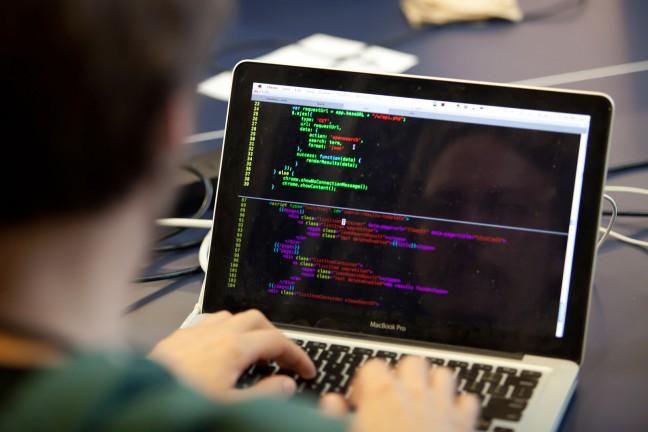Though he was going to participate in one of the most difficult computer programming competitions of his life, University of Wisconsin junior Ingkarat Rak-Amnouykit was excited to just learn and be a part of something phenomenal.
Rak-Amnouykit is part of a team of three UW students who are set to compete in the world finals for the Association for Computing Machinery’s International Collegiate Programming Contest — one of the world’s most challenging competitions.
Team coach and UW computer science professor Dieter Van Melkebeek said the ACM-ICPC world finals consist of a five-hour competition in which teams of three compete against colleges from across the world to finish as many complex problems as possible within five hours. This year, the competition will be held May 24.
This will be UW’s 16th year in the finals, Van Melkebeek said.
“This is an accomplishment no other school can claim,” Van Melkebeek said.
The best UW has done at the world finals is place 11th out of 132 schools worldwide, Van Melkebeek said. After taking first place at regionals last semester, he is hopeful the team’s experience will help improve their performance.
Preparing for these competitions is no easy feat, as weekly meetings can go up to five hours, Rak-Amnouykit said. Each problem, when actually fully solved and completed, can take anywhere from 30 minutes to an hour to finish, Van Melkebeek said.
“It is good to know that there are many people who are better than me and that I have to keep learning to catch up with them,” Rak-Amnouykit said.
The team is made up of Rak-Amnouykit and fellow juniors Krittisak Chaiyakul and Songwong Tasneeyapant. The three have named themselves “Team Chang,” a nod to their roots in Thailand. Van Melkebeek said “Chang” is the Thai word for elephant, a prominent symbol in Thailand.
While Team Chang is competing together again, their return to the 2017 world finals had to be earned first. At the start of each year, individuals must take a placement test that mimics the work they do in a competition, Van Melkebeek said.
The three students who perform best on the individual placement test then comprise the first team, though member compatibility is also considered, Van Melkebeek said. Each year, UW takes five different teams of three people to regionals and the team that places first moves on to the world finals.
Due to a demanding school curriculum, UW’s team generally only completes around 250 problems by the time of the competition. Teams hailing from Europe have reported finishing up to 1,000 problems by the time of the competition.
Van Melkebeek said he is most proud of the legacy of the program and the fact that UW has it at all — a program he says has drawn the attention of graduate students, urging them to come here.
“I think our record within North America is remarkable with our 16 years of continued advancement to the world finals,” Van Melkebeek said. “At the world finals there is still a lot of room for improvement but I think the thing I’m most proud of is that we set up this [program] in the department and we actually have graduate students saying ‘yes we are here because you have this’.”


